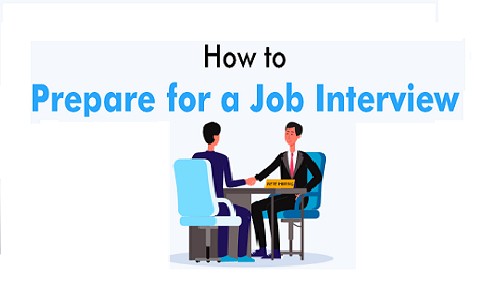How to Prepare for Your Next Job Interview: A Guide to Success
How to Prepare for Your Next Job Interview: Tips for Success
Introduction
Landing a job interview is a huge accomplishment! It means your resume caught the eye of a potential employer, and they’re interested in learning more about you. However, the interview process can be nerve-wracking, especially if you’re unsure how to prepare. In this post, we’ll review essential job interview preparation steps to boost your confidence, highlight your strengths, and make a great impression on interview day.
1. Research the Company Thoroughly
Before an interview, research the company. The more you know about the organization, the better you can align your answers with its values, mission, and goals.
Visit their website: Check out the “About Us” section, mission statement, and latest projects or products.
Look up recent news: Google the company name for any recent announcements or initiatives. This can give you an edge and help you stand out.
Understand their competitors: Knowing a bit about the company’s industry and competitors shows that you’ve done your homework.
2. Analyze the Job Description Carefully
Review the job description line-by-line. Highlight key responsibilities, required skills, and any specific qualifications. Think about how your experiences align with these requirements.
Prepare specific examples: For each skill or experience listed, have a clear example from your past that demonstrates your competency.
Identify keywords: Certain phrases or skills may come up in the interview. Using these keywords in your responses can demonstrate that you’re a firm fit.
3. Practice Common Interview Questions
Interviewers often ask a mix of traditional, situational, and behavioral questions to assess your skills, personality, and fit. Here are some common interview questions to prepare for:
“Tell me about yourself.”
“Why are you interested in this role?”
“What are your strengths and weaknesses?”
“Tell me about a time when you faced a challenge at work and how you handled it.”
“Where do you see yourself in five years?”
Practice your answers out loud or with a friend. Keep your responses concise and relevant. The STAR method (Situation, Task, Action, Result) can help you structure your responses to behavioral questions.
4. Prepare Questions to Ask the Interviewer
An interview is a two-way street. Preparing thoughtful questions for the interviewer shows interest in the role and can help determine if the company fits you.
Here are some ideas:
“What does a typical day look like in this role?”
“What are the most important qualities you’re looking for in a candidate?”
“How would you describe the team dynamic?”
“What are the main goals and challenges for this department over the next six months?”
5. Choose the Right Outfit and Test Your Equipment
First impressions matter. Dress appropriately for the role and company culture.
For in-person interviews: Aim for business or business casual attire. It’s better to be slightly overdressed than underdressed.
For virtual interviews, Choose a clean, distraction-free background. Ensure your camera, microphone, and internet connection are working correctly. Test them beforehand, and consider lighting adjustments to ensure you’re visible.
6. Practice Body Language and Eye Contact
Nonverbal cues are crucial during an interview. Practicing your body language can make you appear more confident and engaged.
Maintain good posture: Sit up straight and avoid crossing your arms.
Make eye contact: This shows confidence and attentiveness. For virtual interviews, look at the camera to simulate eye contact.
Nod and smile naturally: A warm smile and an occasional nod can show you’re engaged and interested.
7. Be Ready to Talk About Salary and Benefits (If Applicable)
Salary discussions can be tricky but common in later interview stages. If you’re asked about your salary expectations:
Do your research: Use sites like Glassdoor or Payscale to find typical salary ranges for similar roles in your location.
Give a range: If pressed, provide a range based on your research and experience. This leaves room for negotiation.
8. Follow Up After the Interview
Sending a thank-you note after the interview can leave a lasting positive impression.
Be prompt: Send the thank-you email within 24 hours of the interview.
Personalize your message: Mention something specific from the interview that reinforced your interest in the role.
Express gratitude: Thank the interviewer(s) for their time and reiterate your excitement about the potential opportunity.
Final Thoughts
Preparing for a job interview might feel overwhelming, but with the right approach, it becomes manageable. From researching the company to practicing your responses and body language, thorough preparation can make all the difference. Remember, an interview is as much about assessing whether you’re a good fit for the company as it is about deciding if the company is right for you. So, prepare well, be yourself, and trust that your hard work and experience will shine through.

 French
French
 Arabic
Arabic
 English
English



